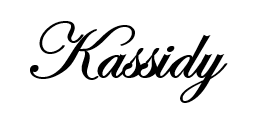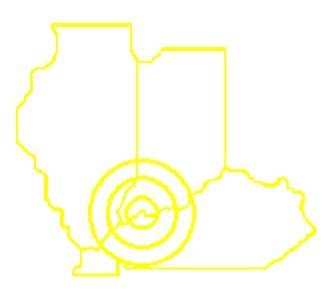
THIS POST IS PART OF THE KASSIDY’S CORNER “CONTENT SURVEY POSTS” SECTION, BASED ON FEEDBACK FROM TSGS READERS LIKE YOU
In my last post, I shared information about how to conduct oral history interviews. By the time you came to the end of the article, you hopefully had some tips to help you successfully interview your relatives who have an incredible story to tell, either about their own lives (oral history) or passed-down stories (oral traditions). But if you rushed to grab a lavalier microphone or request an interview from a long-distance cousin, the name of this post might startle you. If oral history can be fallible and inaccurate, is it really a type of history you should be working with? While we’re going to dive into some reasons why you should treat oral history interviews with a healthy dose of caution, I can still tell you that oral histories offer invaluable information…even when they’re not always accurate.

Tip: Written Histories Aren’t Always Accurate, Either
Before we go further in this post (and before you head to the nearest garbage bin to throw away those interview questions you’d planned out), I think it’s important that we pause here for a moment and consider different ways we gather information. As genealogists, we rely heavily on censuses, marriage records, birth and death certificates, family Bibles, and letters or diaries to construct our family’s story–and there’s nothing wrong with this! In fact, these methods of gathering history are completely appropriate and should be used. But have you noticed that just because a piece of history is written on paper doesn’t mean it’s actually true?
If you’ve been researching for any amount of time, you’ve probably noticed your great-great uncle’s name listed incorrectly on a 1900 census. Perhaps you looked at a death certificate that had the names of your ancestor’s parents listed incorrectly. Or maybe your grandparents’ marriage record lists their birthdate 100% wrong. Bottom line: even written records can be wrong…very wrong.
I’m not mentioning this to make you wary of trusting every primary document you stumble across. On the contrary, I find it a tad heartening that written histories aren’t always accurate. Why? Because it encourages genealogists to cross-reference information and dive a bit deeper during our research (more on that later). Plus, since oral and written histories can both be inaccurate sometimes, we can be encouraged to use both research methods, rather than solely relying on one or the other.

Why Oral History Is Sometimes Inaccurate
When we think about oral history, there are a slew of reasons why the information might not be 100% factual. Here are just a few of those reasons:
- Memories Fade – Our brains have way more experiences than we can process and file away in our memories. I mean, we’re typically awake for 16 hours a day, and during that time we’re may be making meals, having multiple conversations, reading books, working, spending time outdoors, and so much more. If we remembered every iota of our day, well, it would get to be a lot…not to mention, we really don’t need to remember every line of a book we’ve read! As time goes on, both as we age and as events we’re trying to recall are heading further into our past (both for younger and older people), it’s only natural for many of these memories to fade. Simply put, we’ll lose our ability to recall many of those details that were once important.
- Memories Can Become Warped – Our memories aren’t necessarily stagnant. As we live through different events and experience new things, it’s easy for us to re-shape these by-gone memories. And sometimes, our memories are shaped by how other people remember an event. Let’s say we experienced an event with our family–a mom, dad, and 3 siblings. As time goes on, and families discuss what happened over dinners and get-togethers, the various ways our family remembers an event may collide and influence how we remember an event. In my own life–as I’ve discussed different happenings with my family–I’ve noticed that how I perceive an event can certainly be influenced by my family’s perspective, too.
- The Past Isn’t Always Pretty – I know we’ve talked about memories, and that’s because it’s probably one of the most common ways oral histories will lose some of their accuracy. The role of memories in oral history–and the way memory impacts oral history interviews–is pretty much a given and to be expected. When interviewees share inaccurate information because of their memories fading or becoming warped, such inaccuracies are likely unintentional. Yet, as we consider oral history interviews, it’s important to remember that some people may intentionally spread misinformation. As genealogists, we know the past isn’t always pretty (in fact, it sometimes feels like it rarely is!). There’s heartbreak, treachery, deceit, and a million other imperfect aspects of history that reflect how, well, imperfect humankind is. While genealogists and researchers understand this is a natural part of the past, some interviewees may be embarrassed by their own shortcomings or the shortcomings of those around them. Rather than share negative elements of their lives, they may skirt around those issues or fabricate information so that they aren’t viewed in a negative light. In simple terms, there may be a temptation for some people to “sugar coat” the past. And sometimes, interviewees might be so used to re-working the past in their favor that they honestly don’t even realize they’re doing it during the interview (which goes along with memories becoming warped)!

How To (Safely) Use Oral History Interviews
By now, we’ve looked at how even written histories can be fallible, plus we’ve examined a few reasons (of many) why oral histories aren’t always completely accurate. If you’re wondering how valuable it really is to use oral history interviews in your genealogy hunt, I have a piece of good news: there are ways to safely use oral history!
One of the best ways is to fact-check what an interviewee is saying. If they’re mentioning an event that happened in a specific town, can you track down an area newspaper to help corroborate the story? Is there another person who lived through an event who you can interview, thereby gathering different perspectives to hopefully figure out a more accurate narrative? Can you find old letters or diaries that help validate what the interviewee mentioned? As we’ve already looked at, written documents aren’t guaranteed to be completely accurate, but when we can find both oral and written information that leads us to the same place or conclusion, chances are the information is rather factual. This method of cross-referencing information is useful when we’re working with any aspect of history, regardless of whether we’re dealing with an oral and written history or even two (or more) written histories.
Another way to safely implement oral history interviews into your genealogy research is simply by understanding its limitations. By recognizing and acknowledging that oral histories are not infallible, you’re taking a big step in the right direction toward being cautious of oral histories without completely disregarding them. Just as we can’t disregard a census that has a misspelling or a death certificate that lists our ancestor’s birth date incorrectly, we shouldn’t implement a wide-spread avoidance of all oral history interviews either.

In Kassidy’s Corner, we’ve now examined the ways oral history can be beneficial while also acknowledging the reasons we should take a cautious, measured approach with oral history interviews. As I think back on both oral histories and oral traditions, I’ve realized just how beneficial the stories that have been passed down to me have been. By combining oral histories with written documents, I’ve been able to gain a more complete view of my family’s unique story–plus learned lots of details that help me feel more connected to those who came before me. I hope that if you implement oral history into your genealogy research arsenal, you’ll find similar rewards awaiting you.
Happy researching!

Want to continue your study of oral history–both its rewards and potential pitfalls? Then you might want to check out Doing Oral History by Donald A. Ritchie! (Note: TSGS and its board members are not affiliated with the author or publisher; this is a research resource only and does not necessarily reflect the opinions of TSGS or its team.)


